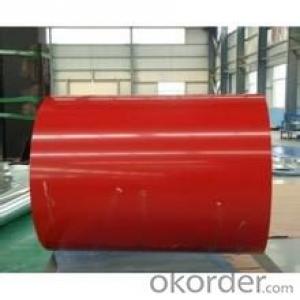Galvanized steel pipes have been a staple in the construction industry for years, and for good reason. They are corrosion-resistant and reliable, making them a popular choice for a variety of applications. But what exactly are galvanized steel pipes, and why are they so highly regarded? Let’s dive in and explore the world of galvanized steel pipes.
The Basics of Galvanization
Galvanization is a process that involves coating steel with a layer of zinc. This zinc layer acts as a protective barrier, preventing the steel from rusting and corroding. The process of galvanization can be done through a few different methods, including hot-dip galvanizing, electro-galvanizing, and sherardizing. Each method has its own advantages and disadvantages, but the end result is the same: a durable, corrosion-resistant pipe.
Why Choose Galvanized Steel Pipes?
There are several reasons why galvanized steel pipes are a popular choice in the construction industry. Here are just a few of the benefits:
– Durability: Galvanized steel pipes are incredibly durable. The zinc coating protects the steel from the elements, ensuring that the pipe will last for years to come.
– Cost-Effectiveness: While the initial cost of galvanized steel pipes may be higher than other materials, the long-term savings are significant. The pipes require less maintenance and have a longer lifespan, making them a cost-effective choice.
– Versatility: Galvanized steel pipes can be used in a variety of applications, from water and gas pipelines to structural supports. Their versatility makes them a popular choice for many different projects.
– Environmental Friendliness: The process of galvanization is environmentally friendly, as it reduces the need for additional coatings or treatments that can be harmful to the environment.
The Process of Galvanization
The process of galvanization is quite fascinating. Let’s take a closer look at how it works:
– Cleaning: The first step in the process is to clean the steel pipe thoroughly. This ensures that any dirt, grease, or other contaminants are removed, allowing for a proper bond between the steel and the zinc.
– Preparation: Once the pipe is clean, it is prepared for galvanization. This may involve treating the surface with a chemical solution or applying a flux to help the zinc adhere to the steel.
– Coating: The steel pipe is then coated with a layer of zinc. This can be done through various methods, such as dipping the pipe into a bath of molten zinc or applying a zinc coating through electroplating.
– Curing: After the pipe has been coated with zinc, it is allowed to cure. This process can take anywhere from a few minutes to several hours, depending on the method used and the thickness of the zinc coating.
– Inspection: Finally, the galvanized steel pipe is inspected to ensure that the coating is uniform and that there are no defects or inconsistencies.
Applications of Galvanized Steel Pipes
Galvanized steel pipes have a wide range of applications, making them a versatile choice for many different projects. Some common uses include:
– Water and Gas Pipelines: Galvanized steel pipes are often used for water and gas pipelines due to their corrosion resistance and durability.
– Structural Supports: In construction projects, galvanized steel pipes can be used as structural supports for buildings and other structures.
– Fencing and Guardrails: Galvanized steel pipes are also used for fencing and guardrails, as they are strong and resistant to the elements.
– Automotive and Agricultural Equipment: In the automotive and agricultural industries, galvanized steel pipes are used for various components and parts that require durability and resistance to corrosion.
Maintenance and Care of Galvanized Steel Pipes
Proper maintenance and care are essential to ensure the longevity of galvanized steel pipes. Here are some tips to keep your pipes in top condition:
– Regular Inspections: Regularly inspect your galvanized steel pipes for signs of wear or damage. This can help you identify any issues early on and prevent more significant problems from developing.
– Cleaning: Keep your pipes clean by removing any dirt, debris, or other contaminants that may accumulate over time. This will help maintain the integrity of the zinc coating and prevent corrosion.
– Protective Coatings: In some cases, it may be necessary to apply additional protective coatings to your galvanized steel pipes. This can help extend their lifespan and provide extra protection against the elements.
– Avoid Abrasives: When cleaning or maintaining your galvanized steel pipes, avoid using abrasive materials or tools that can scratch or damage the zinc coating.
The Future of Galvanized Steel Pipes
As the construction industry continues to evolve, so too does the technology and techniques used to create galvanized steel pipes. Innovations in galvanization processes and materials are leading to even more durable and corrosion-resistant pipes. With a focus on sustainability and environmental responsibility, the future of galvanized steel pipes looks bright.
In conclusion, galvanized steel pipes are a reliable and corrosion-resistant option for a variety of applications. Their durability, cost-effectiveness, and versatility make them a popular choice in the construction industry. By understanding the process of galvanization and the proper care and maintenance of these pipes, you can ensure that your galvanized steel pipes will serve you well for years to come.

